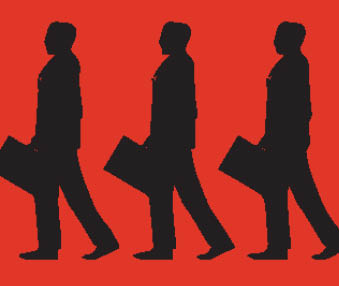Recently, many men in power have been avoiding being alone in the presence of woman colleagues after the assault accusations of their peers, are these measures encouraging or holding progress back?
Men in positions “of power” have been known to use it over women for centuries. That is at least the angle the mainstream generalization takes. But in reality, a man who takes advantage of a woman in the workplace, at the gym, at school, in private is a predator, and all men cannot be labeled “predator by default” and be considered as a danger, due to their gender and their position in society. Does that ring a bell? Yes, it would indeed be highly sexist.
In the same way, women are sharing “tips” and equipping themselves with pepper sprays, or other weapons against sexual assault sounds a little sick. A man, so afraid of being accused of abominations he knows he is not going to commit, taking measures to avoid being in this position is completely surreal. 
And while a part of those men can be expected to be genuinely concerned about getting falsely accused, another part can just know themselves well enough to wander in the grey zone. And for those, those dispositions raise the issue of what they do when they are in a less formal context. Therefore, those dispositions can be said to be pretty ineffective in actually reducing sexual assault in the workplace, and accusations that they bring along.
It even makes a good job at turning the #MeToo movement look ridiculous. Indeed, those measures, are a subtle way to accuse women of false accusation, diminishing the whole concept of giving a voice to victims of assault. What does it mean when a man and a woman cannot be alone in an office without one fearing the actions of the other?
I would like to conclude on the just words of an icon of the 21st century to describe those dispositions: “Groundbreaking” — Miranda Priestly in The Devil Wears Prada.




